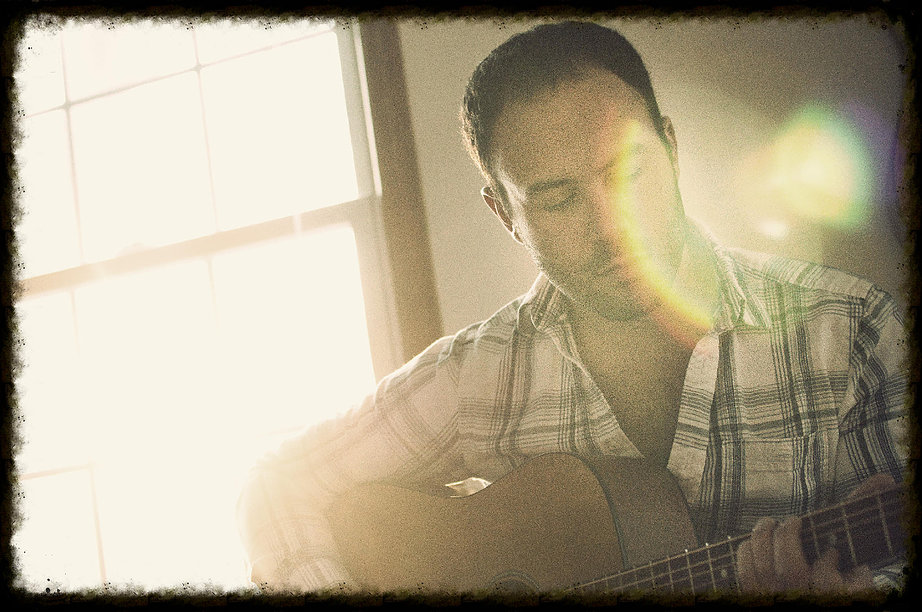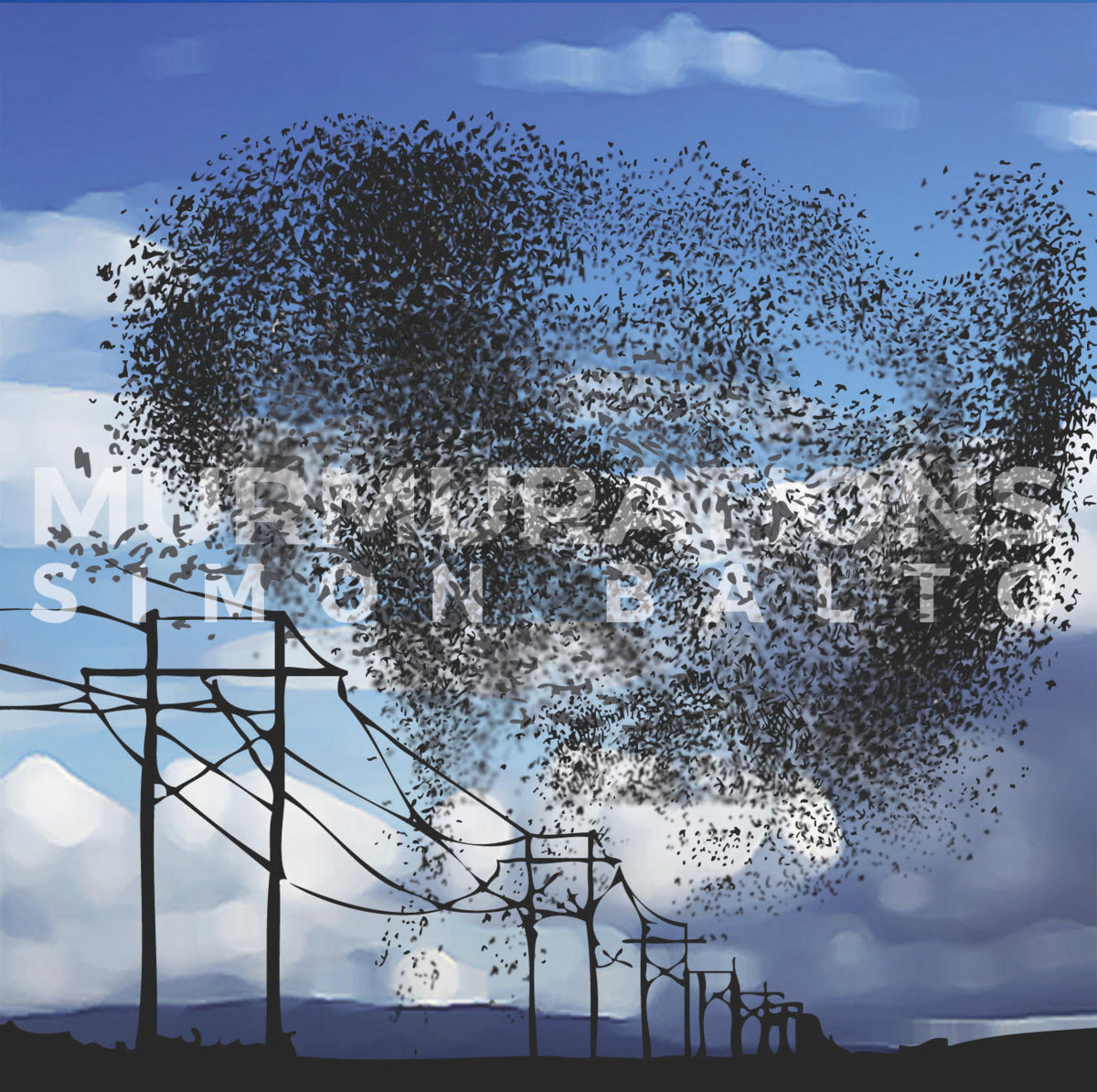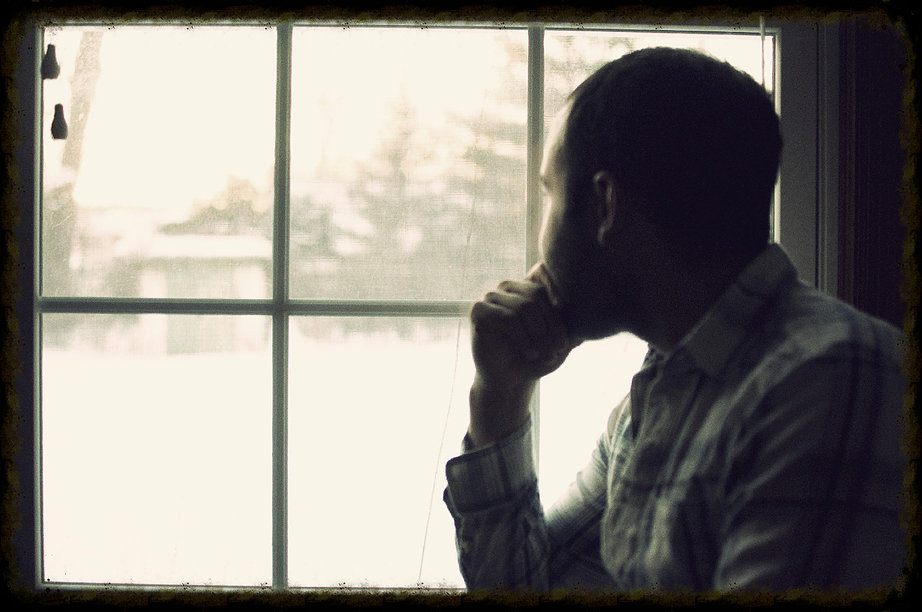We recently reviewed Murmurations, the new album from Wisconsin native Simon Balto. As we said in our review, “Even if you’re not from the Midwest, or even from the USA, it’s likely you will relate to some of the issues that Simon Balto confronts on Murmurations. The struggle to get by in small towns in an age where power and wealth is increasingly confined to big cities…But the album doesn’t come off sounding like a protest. Balto still sees enough beauty in the everyday, in the changing of the seasons and the faces of loved ones, to deal with these struggles with stoicism and hope. The thoughts and ruminations here are rooted in the personal, in all the wishes and fears that make us uniquely human”.
Simon was kind enough to answer some of our questions about the album’s conception, its themes of love and loss in the Midwest and his day job as a college professor. I think you’ll agree that his responses are excellent.
Hi Simon, thanks for speaking with us. How is life now that your new album Murmurations is out in the world?
Hi Liam. Great talking to you. Life’s great, both related to and beyond the record itself. But it does feel good to have it out in the world. It was a long time gestating, and I’m an embarrassingly and foolishly impatient person when it comes to the creative process. I was patient here, and it paid off. But I’m glad that the wait is over.
You now live in Indianapolis but returned to WI to record the album. When listening to the album I get the feeling that this was necessary, that you needed to return home to capture a certain atmosphere during the recording. Is this a romantic idea on my part, or is there an element of truth in it?
It’s actually kind of both. We started the first sessions recording the record as I was in the process of moving to Indianapolis. I still technically had an address in Wisconsin, but everything that was there was in flux and, quite literally, in boxes. I didn’t necessarily “return” to Wisconsin to record, but I did make a conscious choice to do the recording before I left.
This was both pragmatic and romantic. On the one hand, the people that I really wanted to work with on the record were mostly based in Eau Claire, WI, or could easily get there. We recorded at Shane Leonard’s (Kalispell, Field Report) home studio. Shane played percussion, additional guitars, banjo, and other instruments on the record, in addition to engineering and co-producing it. Ben Lester lives literally a couple blocks down the street from Shane, and Ben’s one of my favorite pedal steel players. His stuff with everyone from The Tallest Man on Earth to Aero Flynn to S. Carey is just such a great example of the instrument’s beauty. Steve Hobert, who played keys and accordion, lives about 90 minutes away in Minneapolis/St. Paul, and Kevin Rowe, who played bass, is in Madison, WI, which is a few hours from Eau Claire. Those were the central players on the record, so it made sense to try to do the recording in a place that they could easily access.
But my connection to Wisconsin is also very intimate and very deep. I literally have the state outline tattooed on my arm. And as I’ve gotten older, its pull on me has only gotten stronger. A lot of the songs are written with Wisconsin landscapes in mind, and I couldn’t imagine having recorded it outside of Wisconsin.
[bandcamp width=100% height=120 album=1677397987 size=large bgcol=ffffff linkcol=0687f5 tracklist=false artwork=small track=2256887279]
The album is a full-band effort, which is a stark departure from your debut, The Roads That Make Men Weary. How does the recording process differ when working with a band? Did you set out to make a full-band album from the start? Or did you write the songs alone and build them up from there?
In a lot of ways, the experience was totally different. I wanted to make a full band record; I knew that much right away. I also knew that I wanted to work with Shane on it – I love the work he does as a player and writer, and thought that he’d be able to build the sonic landscapes with me in ways that would enrich the sound without losing the songs’ core saliencies. I still started off the process in the same way as I did with Roads, though. Even though I wanted a full-band record, I wanted to write the guitar and lyrical frameworks for the songs on my own before bringing them to Shane and, eventually, the band.
It was a really welcome departure from Roads, honestly. I’m proud of that record, but in a lot of ways it very much reflects a writing stage that I think I’ve grown out of. The recording process for Roads was a lot of fun, with a friend of mine and I holing up in a cabin in Wisconsin for a few days and him recording me on a pretty minimalist setup. But at the end of the day, it was essentially just me that was laid out on the tracks. I really enjoyed watching the songs grow and gather legs and lungs and breathe as Shane, Steve, Ben, Kevin, Amanda, and Margaret got their hands in the dough.
The state of Wisconsin, and the Midwest in general, is a major theme on the album. What does Wisconsin mean to you? What are the main issues that people there deal with, and what do you think about when you think about home?
Oh, man. This could be a book. You’re right. It is a major theme. It might in fact be the major theme.
For me, the Midwest, and Wisconsin in particular, has a supremely calming effect. Part of that I suppose is just a matter of comfort, since I’ve lived in Wisconsin for about 90% of my life and in the Midwest for all of it. But it’s deeper than simple familiarity, I think. I come from the southwest corner of Wisconsin, which is very, very hilly and very rural. It’s gorgeous – like, stunning in its natural beauty. And the particular plot of land on which I grew up was at the dead end of a mile-long road in the bottom of a valley, where the closest neighbor was at least a fifteen-minute walk away. When I was a kid, I hated the isolation, but it had the effect of really priming me to the rhythms of the seasons, the power of nature, and the beauty of physical and auditory spaces that don’t have much of a human footprint.
So now, fast forward to me at 33, I still think in similar ways about nature, and there’s no place that puts a grip on me in this way more than the Midwest. I’ve traveled all over the U.S. and seen many beautiful natural spaces. But for me, nothing compares to that little isolated pocket of Wisconsin. We’re about to hit autumn here, and I wish you could see it. Words can’t do it justice.
Finally, I’d just say that the Midwest is important to me because of the kinship I feel with so many of the people here. A mentor and friend of mine who grew up near me, but was about twenty years older, passed away on New Years this year. But one comment he made that will stick with me: we were drinking beers at a bar in Wisconsin after a cross-country trip he’d made scouting bluegrass bands for a festival he curated. I asked how it had been, and he said that it was good, but that he preferred to be home. I asked how come. He mentioned the beauty that I talked about a minute ago. But he also said, simply, “the people here aren’t assholes.” I know there are plenty of people elsewhere in the States who aren’t assholes; I’m privileged to know a great many of them. But at least in Wisconsin, I think there are fewer of them per capita than there are elsewhere.
Another prominent image is one of the murmuration. What is it about starlings that made you want to name an album after them?
The visual effect of watching starlings in murmuration is, to me, one of the most awe-inspiring in nature. I absolutely love it and am totally confounded by it. One day I started sketching the song that became the title track (“I hope your heart breaks into starlings when it’s time for you to go”), and knew that Murmurations was going to the record title.
But perhaps the strongest thread of all is that of loss, be it in terms of the death of a loved one or a traditional way of life. Is the sense of loss in your music based on personal experience or are they works of fiction? And do you ever think about the positive effect your music could have on people going through such issues?
I get variations of the question “why are your songs so sad” a lot. Before the record came out, I jokingly told a friend of mine that she’d be pleasantly surprised because there were at least two songs on it that were not discernibly sad.
The irony is that I’m actually a really happy person for the most part, but I think loss is such a universal human experience that it’s worth spending time thinking about and writing about. I don’t generally write about my own experiences, and if I do, it’s usually in fairly opaque ways. The songs about loss that are really lyrically specific (‘Midwest Elegy’ and ‘Ohio,’ in particular) are far more observational than personal. As much as I love where I come from, it’s a place that’s seen a lot of people struggle in the post-industrial age, and I wanted to try to capture the experiences of people trying to cope with the loss of a way of life. A few others (‘Dark Burns,’ ‘Revelation Road’) have more elements of my own life in there; ‘Dark Burns’ draws some from the experience of losing my mom, while ‘Revelation Road’ comes in part from the death of a friend in a car accident two winters ago. For the most part, though, even though I’m a very specific lyricist, I try to universalize experiences rather than just talking about my own. The pool from which you can draw as a writer gets so much more expansive and interesting if you start putting yourself in other people’s shoes.
As to your final question, I’m not sure if I ever put a lot of thought into my music helping people work through things. But at least in some measure, it seems to have had that effect on some people. When I first debuted ‘Midwest Elegy’ in a live session on Wisconsin Public Radio, my email inbox got blown up by people talking about how it related to things they were dealing with. When I was out on tour playing ‘Dark Burns’ last month, a number of people came up afterward for a hug and to talk about their own experience losing a parent. Those are the experiences that really make touring worth it.
[bandcamp width=100% height=120 album=1677397987 size=large bgcol=ffffff linkcol=0687f5 tracklist=false artwork=small track=2588392051]
This isn’t strictly about your music, but I read online that you have a doctoral degree and teach history at a university in Indiana. Do you have a specific area of interest? And what effect do your intellectual pursuits have on your music?
Ha! A newspaper in Madison, Wisconsin previewed my show there this summer by calling me something like “a Ryan Adams-esque vocalist who also happens to be a college professor,” which made me laugh. But yes, it’s true. I generally try to keep those worlds separate; and mostly only tour in the summer as a result.
I teach history, and specialize in African American History. Honestly, the biggest way that it comes to bear on my music is that being a history professor is a job that requires you to read A LOT. And I think that the more you read, the more you refine your own skills as a wordsmith and lyricist. I know that I feel exponentially more primed to write if I’ve been reading a good book – even a good history book – before I sit down to write. And when I think about some other great lyricists of my generation – folks like Chris Porterfield of Field Report, Justin Kinkel-Schuster of Water Liars, Amanda Shires – one of the things that we have in common is a passion for books and good wordsmithing. I’m not saying I wouldn’t read as much if I didn’t teach history; but it certainly forces me to do so and pays dividends musically as a result.
Finally, could you name 4/5 artists that you’ve been listening to recently? They can be brand new or golden oldies, whatever you’re into.
Great question. My listening tastes are all over the map, but I’ll give it a crack. Probably the most-anticipated album of this year for me is Hiss Golden Messenger’s one, due out next month. Mike Taylor is hands-down one of my favorite writers, and the band he’s assembled around him is just right in my wheelhouse. There’s a rapper out of Chicago named Noname, and her new mixtape Telefone might be my favorite record of the year so far. Its closest competition is the new Mount Moriah record, which is essentially perfect. I’m also completely in love with the new record Cartoon Moon by my friends Dead Horses, who do pretty much perfect Americana. And finally, for the traditional crowd, Bruce Molsky’s new project Molsky’s Mountain Drifters is just fantastic fiddle tunes and traditional folk.
Wow. That’s six, and I didn’t even mention my Springsteen and Kendrick Lamar obsessions. I guess I’ll stop there*.
*Simon has since emailed to let us know that Bon Iver’s 22, A Million is (and I quote) “blowing my mind”.
Murmurations is out now and you can get it from the Simon Balto Bandcamp page.



